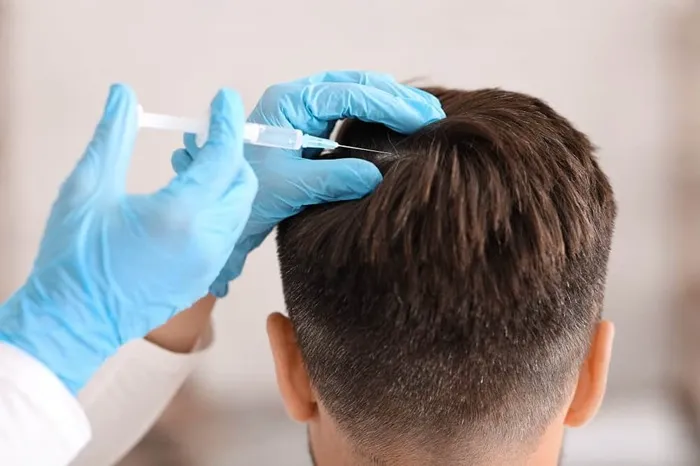Hair loss is a concern that can strike at any age, and many individuals in their 30s find themselves grappling with this issue. As hair transplantation becomes an increasingly popular solution, a common question that arises is: is 30 too early for a hair transplant? The answer is not straightforward and depends on a variety of factors, including the cause and extent of hair loss, personal expectations, and the individual’s overall health.
Understanding Hair Loss in the 30s
Hormonal Changes
One of the most common causes of hair loss in 30 – year – olds is androgenetic alopecia, also known as male – or female – pattern baldness. In men, this is often due to the conversion of testosterone into dihydrotestosterone (DHT), which shrinks hair follicles over time. In women, hormonal imbalances, such as those caused by pregnancy, menopause, or polycystic ovary syndrome (PCOS), can lead to hair thinning.
Stress and Lifestyle Factors
Stress, poor diet, lack of sleep, and excessive alcohol consumption can all contribute to hair loss in 30 – year – olds. Telogen effluvium, a condition where a large number of hair follicles enter the resting phase simultaneously, can be triggered by significant physical or emotional stress.
Assessing the Suitability of a Hair Transplant at 30
Extent of Hair Loss
The extent of hair loss is a crucial factor in determining whether a hair transplant is appropriate at 30. If hair loss is minimal and limited to a small area, non – surgical treatments such as medications (e.g., minoxidil, finasteride for men) or platelet – rich plasma (PRP) therapy may be sufficient. However, if hair loss is extensive and has had a significant impact on the individual’s self – esteem, a hair transplant may be a viable option.
Progression of Hair Loss
It’s essential to consider the progression of hair loss. If hair loss is rapidly advancing, it may be wise to wait until the rate of loss stabilizes before undergoing a hair transplant. This is because a transplant at an early stage may not account for future hair loss, potentially resulting in an uneven or unnatural appearance. On the other hand, if hair loss has been stable for a period, a hair transplant can provide long – term results.
The Advantages of a Hair Transplant at 30
Early Intervention
Undergoing a hair transplant at 30 can prevent the psychological toll that hair loss can take over time. By restoring hair density and improving appearance, a hair transplant can boost self – confidence and have a positive impact on personal and professional relationships.
Longer – Term Benefits
Since 30 – year – olds have a longer lifespan ahead, a successful hair transplant can provide many years of satisfaction. The transplanted hair, typically taken from the back or sides of the head where follicles are genetically resistant to hair loss, will continue to grow naturally.
The Disadvantages of a Hair Transplant at 30
Future Hair Loss
As mentioned earlier, there’s a risk that hair loss may continue after a transplant. If this occurs, additional transplants may be necessary, which can be costly and time – consuming.
Limited Follicular Reserve
If a large number of follicles are transplanted at a young age, there may be a limited supply of donor follicles for future use, should further hair loss occur.
Choosing the Right Hair Transplant Technique at 30
Follicular Unit Extraction (FUE)
FUE is a popular choice for 30 – year – olds. This minimally invasive technique involves extracting individual follicular units from the donor area and transplanting them to the recipient area. FUE leaves small, circular scars that are less visible, making it suitable for those who prefer to wear their hair short.
Follicular Unit Transplantation (FUT)
FUT involves removing a strip of skin from the donor area and dissecting it into individual follicular units. While FUT can transplant a large number of follicles in one session, it leaves a linear scar at the donor area. However, the scar can often be hidden by the surrounding hair.
Post – Transplant Care and Expectations
Proper Care
Regardless of the technique used, proper post – transplant care is essential. This includes following the surgeon’s instructions regarding scalp care, medication, and lifestyle modifications. By taking good care of the transplanted hair, individuals can maximize the results of the transplant.
Realistic Expectations
It’s important for 30 – year – olds to have realistic expectations about the outcome of a hair transplant. The results may not be immediate, and it may take several months for the transplanted hair to start growing. Additionally, the final results may not be fully visible for up to a year.
Conclusion
In conclusion, 30 is not necessarily too early for a hair transplant. The decision should be based on a comprehensive assessment of the individual’s hair loss situation, personal expectations, and overall health. By consulting with a qualified hair transplant specialist, 30 – year – olds can make an informed decision about whether a hair transplant is the right option for them. With the right approach, a hair transplant can provide long – term satisfaction and improve the quality of life for those struggling with hair loss.
Related topics:
- DHI Method: All You Need to Know
- DHI Hair Transplant Before and After: What You Need to Know
- What Is the Difference Between Dhi and Fue Hair Transplant


